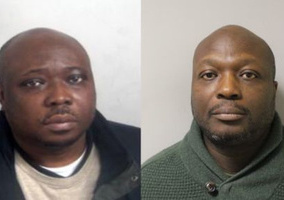HM Revenue and Customs has reported an increase in the number of charity tax cases taken to civil courts alongside criminal cases and related prosecutions.
At Charity Tax Group’s conference last week in London, HMRC representatives discussed the authority’s work to recoup funds and urged more trustees to seek professional advice.
Darren MacDonald, compliance lead for charitable expenditure at HMRC, said: “There’s a definite uptick in cases that are taken to the civil courts.
“There’s a definite uptick in criminal cases and prosecutions in this area.”
MacDonald said HMRC is “constantly looking for ways to invest in our systems to future-proof them and provide a more robust defence against allowing bad actors access to charitable tax reliefs that should rightly go to people doing the right thing”.
“There’s a specific inward look around what we can do to develop our systems to better identify fraud,” he added.
“In terms of how we constantly try to learn and develop our compliance and risk techniques, we work closely with our criminal arm at HMRC called the Fraud Investigation Service.”
Trustees not taking ‘appropriate advice’
On compliance, MacDonald said that one of the biggest pitfalls his team sees is charity trustees not taking “appropriate advice”.
“There’s plenty of guidance out there and free guidance as well, but if your affairs are more complex, HMRC would actively encourage you to go and seek advice from a professional and pay some money because in the long run, it could save you a lot more.
“Be responsible. Operate the appropriate financial controls and policies to reduce the risk of error, mistake and fraud. Good record-keeping is key.”
He highlighted some common errors seen by HMRC, including records not being kept up to date, which can lead to a gift aid form or tax return being rejected.
“We need to know who the authorised officials of the charities are at the time and where you’re registered,” he said.
“Almost 90% of gift aid claims that were rejected last year were because the authorised official or address didn’t match what was in HMRC’s records.
“That’s probably because in a lot of areas in the charity world, there are high turnovers of officials or trustees and the previous authorised official remains on the record when the new one comes on board.”
On why tax returns might be rejected, he said the most common reason was that they were left blank or not signed by a trustee.
Charity sector ‘very compliant’ overall
Also at the event, Mark Pickard, head of savings and charities policy at HMRC, said “a lot of the trends in gift aid are quite positive and awareness is strong”.
Pickard said that overall, there is a growth in “the volume and value of gift aid claims” and that charities are “very compliant”.
“People do want to get things right, but occasionally we’ve seen targeted instances of abuse and we’ve acted to close down those loopholes when there’s clear evidence it’s necessary to do so,” he said.
Pickard added that HMRC has been thinking more about how it communicates, notably on social media platforms.
“We posted on Gift Awareness Day and we’re happy to do so on similar days if people have ideas or suggestions. We’re considering making our charities guidance more interactive.
“Now, that won’t be the technical guidance that sophisticated charities engage with but we’re quite aware that sometimes donors are put off from donating or even claiming tax relief by the complexity of the rules.
“Hopefully, that interactive guidance will guide donors to the right way of donating. And there are other work streams in that space as well.”
Related articles












